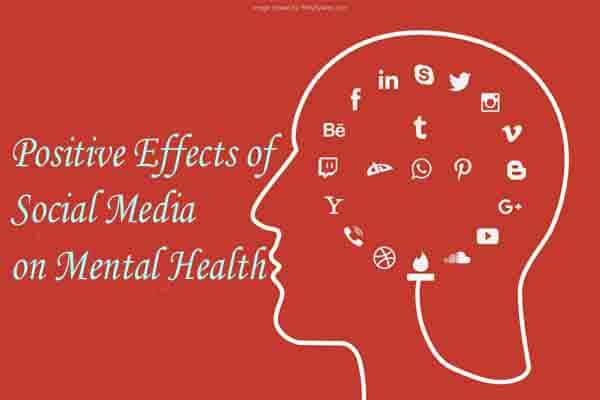Social media has become an important part of many people’s lives. It can be a way to connect with friends and family, share photos and videos, and learn about new things. But how does social media affect mental health? Research suggests that social media can have positive effects on mental health.
Exposure to supportive networks and positive content can help reduce stress and anxiety, promote social support, and boost self-esteem. Furthermore, social media can help people cope with and recover from mental health problems.
Social media also allows people to connect with others in ways not possible in face-to-face interactions, leading to improved mental health. Furthermore, social media can help people manage their health, such as with tools that create a community for discussion on mental health issues.
Social media has become a way to connect with friends and family, share photos and videos, and learn about new things. But the effects of social media on mental health are not completely understood.

The Negative Effect Of Social Media On Mental Health
There is a growing concern over the impact of social media on mental health, with some experts warning that the platforms can have a negative effect on users’ wellbeing.
Social media can be addictive, and it’s easy to get sucked into spending too much time on sites like Facebook, Twitter, and Instagram. This can lead to feelings of loneliness, envy, and depression, particularly in young people.
Studies have shown that excessive social media use can be linked to anxiety, low self-esteem, and body image issues. It can also cause people to feel isolated and lonely, as they increasingly spend more time online than with friends and family.
Social media can also be a breeding ground for cyberbullying, with young people often targeted by bullies online. The more time you spend on social media, the greater the risk of negative consequences. However, it’s important to remember that this is not a one-way street. Your positive posts and interactions with friends can help improve your mental health.
What are the risks of social media use?
With social media sites becoming increasingly popular, more and more people use them to communicate with friends and family. While social media can be a great way to stay connected, it also has risks.
Here are some of the biggest risks of social media use:
1. Privacy Risks:
Social media sites are often public, which means that your personal information is available to anyone who visits the site such as name, email address, phone number, and home address etc.
2. Identity Theft:
Criminals can use your personal information to steal your identity or access your accounts. They can then use this information to commit fraud or other crimes in your name.
3. Cyberbullying:
People unhappy with what you’re doing online can make your life miserable.
4. Addiction
People who spend too much time on social media sites may get hooked and find it difficult to step away from the site.
5. Sexual Predators
Sex offenders use social media sites like Facebook and Twitter to find their next victims.
6. Identity Theft by Government Authorities
Government agencies can also use your personal information to conduct identity theft. This can include using your personal information for criminal investigations or stealing money from you.
7. Cyber-Stalking by Anonymous People
Some people use social media sites to stalk and harass others without the victim’s consent. For example, they may send harassing messages or post pictures of the victim and their partner without consent.
8. Identity Theft by Private Investigators
Private investigators may use the personal information of any person they are investigating to find another person and get a false credit report on them, which can be used to open up new accounts in their name.
9. Cyber-Bullying by Anonymous People
Some people use social media sites to cyber-bull their opponents, such as posting embarrassing or mean comments about them on social networking sites.
10. Cyber-Bribery
When someone uses social media to offer a bribe or other money for something in exchange for their silence, such as when the police ask for information about a victim or their family member.
How much time do I need to spend on social media?
As social media becomes more ingrained in our society, people are starting to wonder how much time they should be spending on it. Some people think that social media is a waste of time, while others can’t imagine living without it. How much time you spend on social media depends on your personal goals and what you hope to get out of them.
If your goal is to stay connected with friends and family, a couple of hours a day should be enough. However, if you’re looking to use social media for business purposes, you need to devote more time to it. The amount of time you need to spend on social media also depends on the type of social media platform you’re using.
